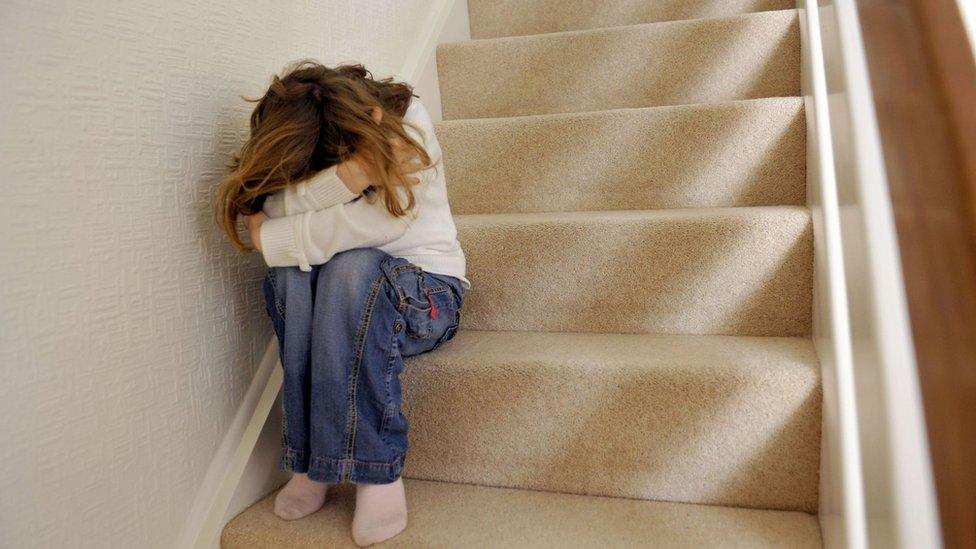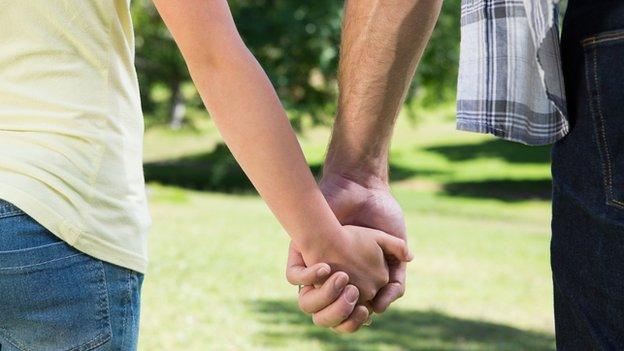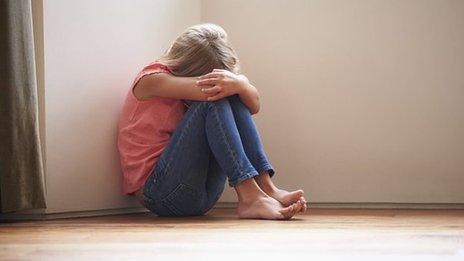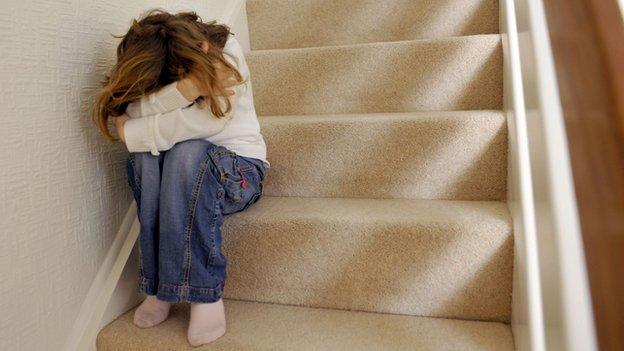Children with learning disabilities 'more vulnerable to abuse'
- Published

Children with learning disabilities are more vulnerable to sexual exploitation, new research suggests.
A coalition of children's charities say they have the "same vulnerabilities" as all children but face extra "barriers" to getting protection or support.
Their report, external calls on UK authorities to offer "accessible and appropriate" sex and relationships education to children with learning disabilities.
The government said the study shone a "much-needed spotlight" on such abuse.
The report was commissioned by Comic Relief, and was produced by Barnardo's, the Children's Society, the British Institute of Learning Disabilities, Paradigm Research and Coventry University.
'Not heard'
Commenting on the "barriers" stopping children getting protection or support, the report says: "The reasons for this are complex and appear to be entrenched in the way society perceives and treats young people with learning disabilities."
It says the research "illustrates that the abuse of disabled children is under-reported and often hidden, and that a range of myths and stereotypes surround the abuse they experience".
"It highlights that disabled children often make clear disclosures of abuse - often multiple disclosures - without being heard," the report adds.
It says many victims display "challenging" behaviour after being abused - but this is "often assumed to be related to a child's impairment rather than an indication of abuse".

Case study
Jane (not her real name) has autism and was 14 when a man she met online convinced her to send intimate pictures of herself.
"I thought I was talking to someone two years older than me," she said - but the man turned out to be "a lot older".
"He asked me to send private pictures of myself and I thought 'well, he likes me, this is what everybody does, it must be a couple thing' and he told me that as well so that was reassuring for me."
Jane, now 19, added: "When I found out who he really was I really regretted it and I wish I could turn back time."
Speaking about the pictures, she said: "He sent them to other people and then they sent them to their friends and I was at school at the time and the pictures ended up going around school and I was bullied quite a lot.
"There were pictures printed out and put around school at the time so wherever I went these pictures were following me."

Researchers found children with learning disabilities and professionals working with them reported a "general lack of attention to sex and relationships education".
Such education, focussed on healthy relationships and raising awareness of sexual abuse, should form part of "every young person's education", the report adds.
It also highlights "significant gaps" in the knowledge of professionals working with children, and calls for extra training.
'Stay safe'
Emilie Smeaton, research director at Paradigm, said there was a perception children with learning disabilities did not have the same sexual needs and desires as others.
Some also incorrectly believed such young people would not be exploited, she added.
Barnardo's chief executive Javed Khan said: "No-one wants to believe a child with learning disabilities could ever be exploited in this way, but it is happening all over the UK.
"A lack of awareness of the needs of these vulnerable children is playing into the hands of perpetrators of sexual exploitation."
A government spokesman said the research "shines a much-needed spotlight on this tragic and often underestimated abuse".
He added: "We are exploring how personal, social, health and economic education training and resources could be tailored for staff in special schools, and strengthening guidance for professionals, including teachers, social workers and police officers so they are better equipped to support particularly vulnerable children."
- Published5 May 2015

- Published13 May 2015

- Published18 May 2015

- Published19 November 2014
